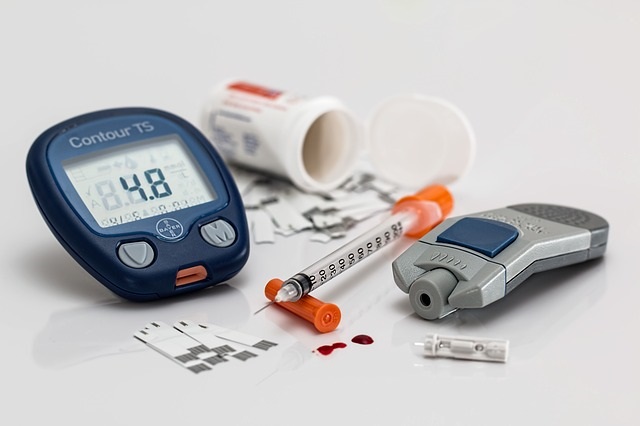Diabetes in the Workplace: How it Affects Your Business, and What You can Do
Disclaimer: This is meant to be an informative piece about how diabetes affects your workplace, and how you can help. We do not condone discrimination or bullying based on obesity, diabetes, or any other quality of a person. On the contrary, compassion and understanding are required to help colleagues make positive lifestyle changes.

On Monday, the 14th of November, it is going to be “World Diabetes Day.” As such, we would like to discuss what your workplace should be doing to help those with diabetes, and also to prevent the onset of type-2 diabetes. Most people have heard of diabetes, but many people do not really understand what it is. Often we think of it as a person being overweight, or eating too much sugar, which is far from the truth. Before we talk about the effects diabetes has on office productivity and prevention/treatment techniques, let’s first talk about the different types of diabetes and how they differ. If you have no interest in that, feel free to skip ahead.
What is Diabetes?
To avoid getting bogged down, the following description is simplified: Diabetes, also known as Diabetes Mellitus, is a chronic disease where a person has extra glucose (sugar) in their bloodstream. Insulin is the hormone that signals your cells to absorb glucose from the bloodstream, meaning that it’s very important in regulating blood sugar levels. Insulin is involved in all 3 types of diabetes and also pre-diabetes. Let’s explore the differences.
Type 1 Diabetes (previously referred to as Juvenile Diabetes) is an autoimmune disorder where a person’s immune system attacks their pancreas, and the pancreatic cells that produce insulin are destroyed. Lacking insulin, diabetics cannot absorb glucose and it builds up in the bloodstream after meals. Type-1 diabetes is a genetic disorder, usually developing in childhood. The cause of the disease is unrelated to diet, but like other types of diabetes, its pathology makes every food decision extremely important.
Type 2 Diabetes (previously referred to as Adult Onset Diabetes) is when the body becomes insulin resistant – usually in response to high insulin levels which then causes a downregulation of insulin receptors on cells. There is a genetic predisposition, meaning that some people are more prone to it than others, but it is thought to be triggered by dietary factors. Long-term abnormal blood sugar levels from poor diet eventually cause an irreversible shift to the diabetic state.
Pre-Diabetes is the precursor to type-2 diabetes. It is when your blood sugar levels are above normal levels, but not high enough to considered diabetic for diagnostic purposes.
Gestational Diabetes is when a person develops an insulin resistance, but only during the duration of their pregnancy. These people are at a higher risk of developing type-2 diabetes later in life.
Find out more here: https://www.diabetesqld.org.au/
The Link with Productivity
A study of 7,338 workers who were either at-risk, had pre-diabetes or had type-2 diabetes (the conditions where lifestyle factors play a role), were surveyed about their work productivity. Based on the findings, not only was obesity a factor that decreased productivity, but diabetes was an independent factor that also decreased productivity.
Another study also found out that people were less likely to have a job, and were more likely to have workplace limitations including more sick days, higher presenteeism, and being away from work to attend medical appointments.
Full article: American Diabetes Association
As a business leader, you should aim to reduce the incidence of pre / type-2 diabetes and thus positively affect your workers’ health and company’s productivity. You should also discuss this issue with diabetics in your team, to see if you can find strategies to minimise the distractions associated with the medical condition that is such a real part of their lives.
Prevention of Type-2 Diabetes: What Can You Do?
By implementing fitness and nutrition strategies as part of your corporate wellness program, you can tackle this issue head-on. In fact, even once someone has developed diabetes, lifestyle interventions are key to controlling the disease. In the case of pre-diabetes and type-2 diabetes, good diet and regular exercise may even reverse the onset of symptoms.
What Would Your Wellness Plan Look Like? HSG offers:
• Nutrition Workshops
• Healthy Eating Demonstrations
• Boxing-Fitness Sessions
• Yoga
• Pilates
• Circuit Training
• HIIT – High-Intensity interval training
Find out more about our healthy eating programs
Learn more about our fitness classes
See a full list of corporate wellbeing services that can be included in your wellbeing program.






